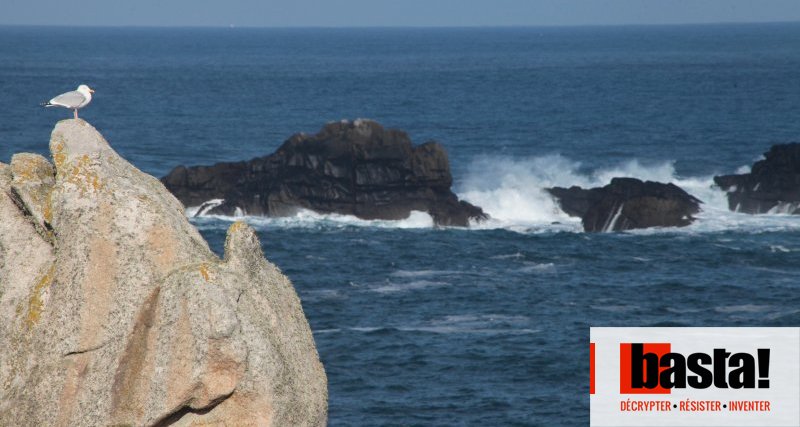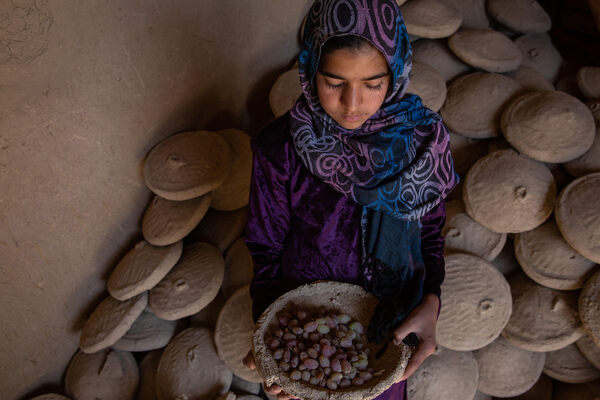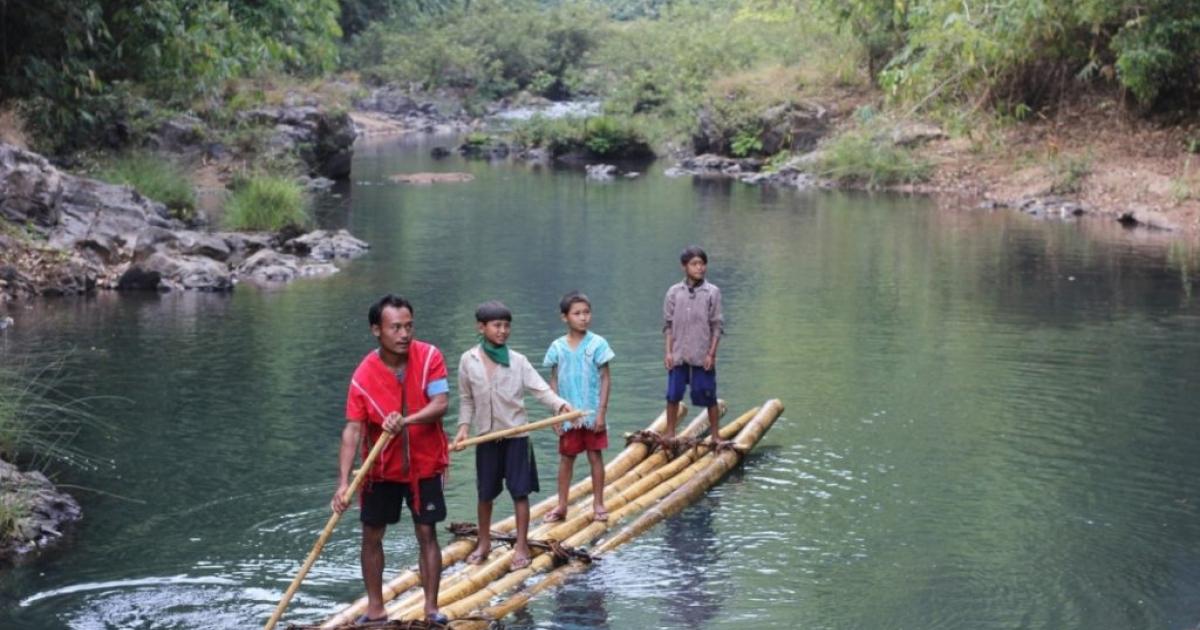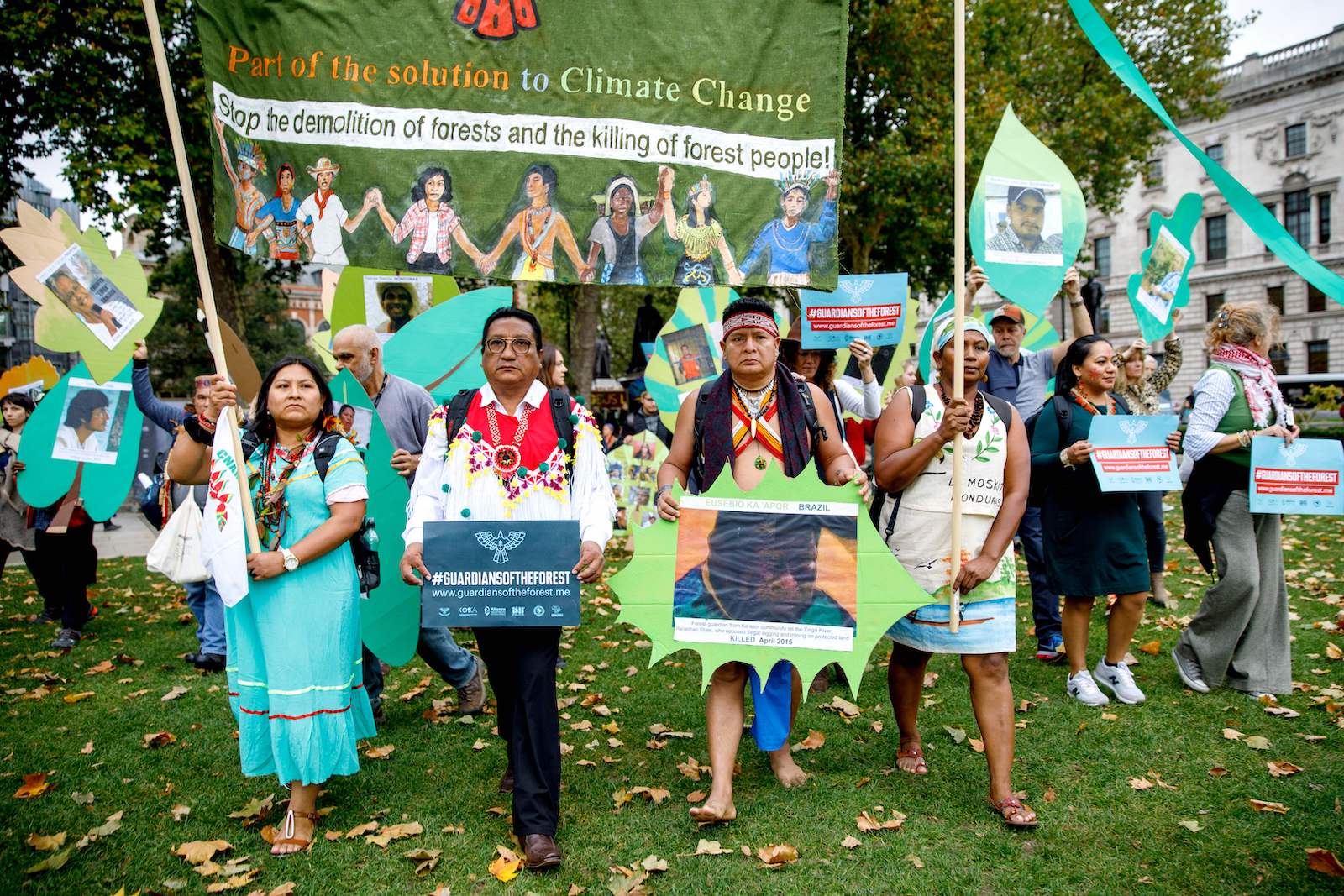2 Likes
#preservation
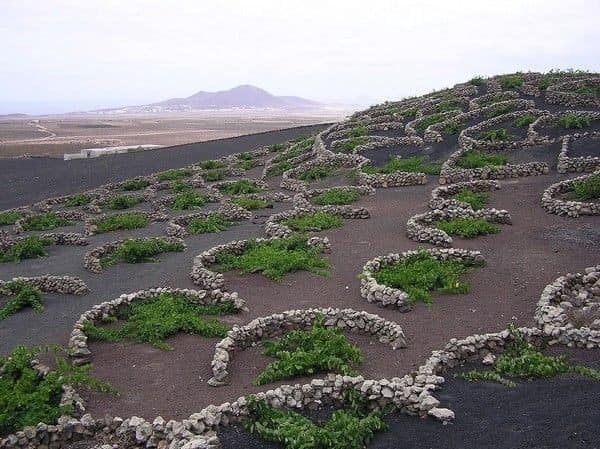
The magic of halfmoon farming is spreading beyond sub saharan Africa
The simple idea to create a halfmoon to capture the rain water and provide more water to the ground that it would usually do when most vegetation has been removed and risk for erosion and floods increases, this idea has started helping the hills and dry land to turn into pockets of greets with native plants and deeply rooted bushes helping to preserve the top soil, provide more ground water and prevent floods.
#Activism #GreenSolutions #Agriculture #Preservation #Halfmoon #ClimateChange #DoSomething #CLimateEmergency
9 Likes
6 Comments
5 Shares
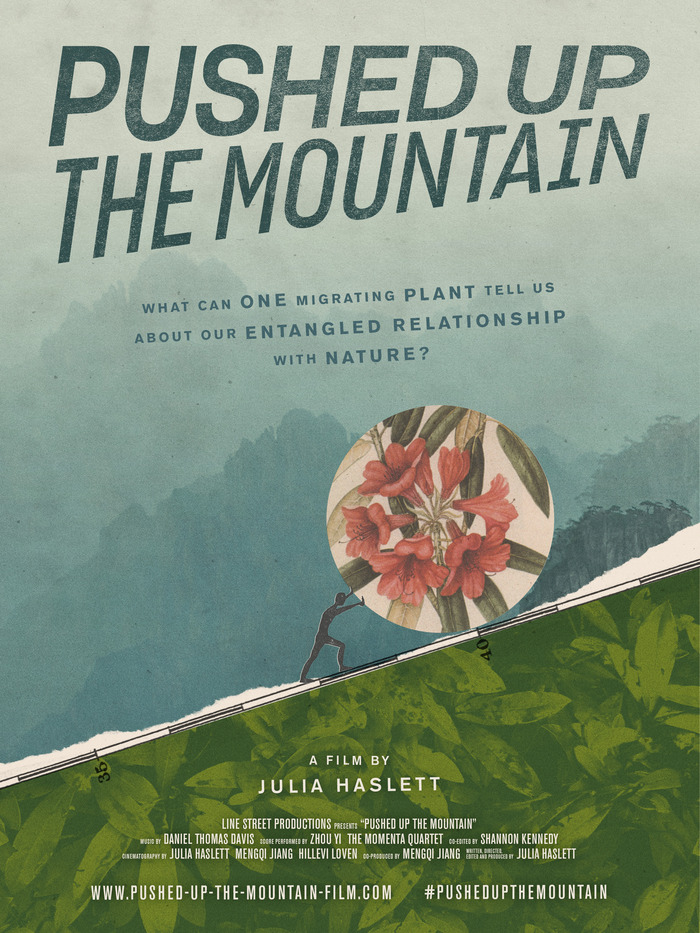
Pushed Up the Mountain
Pushed Up the Mountain is a poetic and emotionally intimate film about #plants and the #people who care for them. Through the tale of the migrating rhododendron, now endangered in its native #China, the film reveals how high the stakes are for all living organisms in this time of unprecedented destruction of the natural world.
Beginning in my godfather’s garden in the Scottish Highlands, the film travels between conservationists in #Scotland and China who devote their lives to the rhododendron’s survival. Patiently observed footage of conservationists at work combines with centuries-old landscape paintings and my speculative voice to create a thought-provoking film about human efforts to protect nature for and from ourselves.
Director’s Statement
The inspiration for this film began in my godfather’s rhododendron garden in Scotland. I was there filming a short piece about a group of rhododendron enthusiasts gathered to work on a conservation project. What I learned was that most of these plants were originally from China, brought during the height of the British Empire, and that some were now endangered in their native habitat. In fact, some plants had even been reintroduced from the UK to augment threatened populations in China. The idea of this plant leaving and then returning home intrigued me. At first glance, it looked like an example of global cooperation to protect biodiversity against human caused threats. But what did it look like in reality given the legacy of colonialism at its core? Could this showy garden shrub reveal something about our entangled relationship with nature?
In 2015, I set out to answer some of those questions. Over the next four years, I and the film’s co-producer Mengqi Jiang filmed throughout China’s mountainous southwest and in its urban centers to the east. This combined with filming in Taiwan and more location shooting in Scotland. We interviewed nature conservationists, environmental historians, and philosophers, art historians, literary scholars, and horticulturalists. All people who cared deeply about nature but thought about it from different perspectives.
The result is Pushed Up the Mountain, a film that I hope will encourage people in countries around the world to think more deeply about the plants all around them and ultimately work to protect them. The coronavirus has powerfully demonstrated how interconnected we all are. The rhododendron gives us one more example of how we must come together across national divides to address the existential threats facing our species and our planet.
#PushedUpTheMountain #documentary #film #nature #environment #biodiversity #endangered-species #conservation #protection #preservation #GengYuying #DavidChamberlain #FangZhendong #SunWeibang #IanSinclair #LiuHuajie #HouShen #PanFujun #ZhangChao #MengqiJiang #JuliaHaslett #GOODDOCS #docu-films
6 Likes
1 Shares
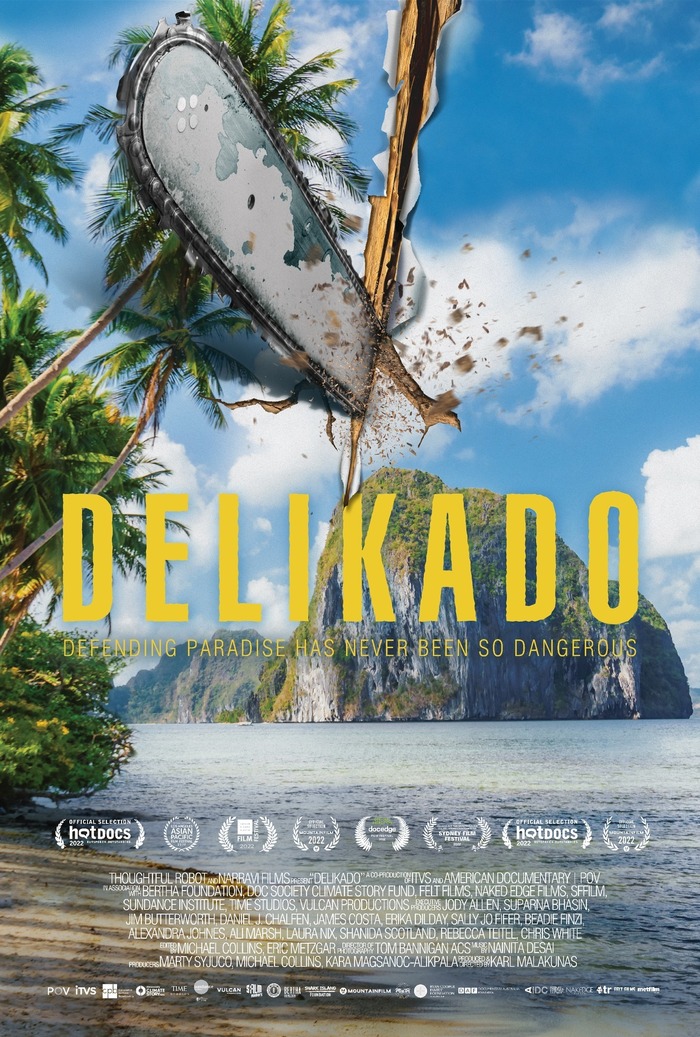
DELIKADO
Defending paradise has never been so dangerous
#Palawan appears to be an idyllic tropical island. Its powder-white beaches and lush forests have made it one of Asia’s hottest new tourist destinations. But for a tiny network of environmental crusaders and vigilantes trying to protect its spectacular natural resources, it is more akin to a battlefield.
DELIKADO follows Bobby, Tata and Nieves, three magnetic leaders of this network, as they risk their lives in David versus Goliath-style struggles trying to stop politicians and businessmen from destroying the Philippines’ “last ecological frontier”.
It is a timely film emblematic of the struggles globally for land defenders as they are being killed in record numbers trying to save natural resources from being plundered by corporations and governments. As the world faces its sixth-mass extinction and the climate emergency worsens,
It is also a unique expose of President Rodrigo Duterte’s “war on drugs’ in the Philippines, which has claimed thousands of lives and the International Criminal Court of Justice has said may amount to a crime against humanity. DELIKADO shows the drug war is used as a tool for politicians to control the levers of economic and political power.
DELIKADO offers a story of courage and resilience to inspire others into action.
The battles being led by Bobby, Tata and Nieves in DELIKADO are the same as those being fought by local communities in #Brazil, #Cambodia, the Democratic Republic of #Congo and elsewhere around the world where #corporations and #governments are seeking to plunder increasingly valuable natural resources.
They are being killed for trying to stop #mining, #agribusiness and #logging. Many of the deaths occur in remote villages or rainforests. The victims are often from indigenous communities and the killers are rarely caught. The powerful masterminds behind the murders virtually never. All these factors are in play in Palawan.
The film has a special relevance and urgency in highlighting the perilous fate of Palawan, the most biodiverse part of the Philippines and home to two UNESCO World Heritage-listed natural wonders.
Palawan, due to its remoteness, had long avoided the corrupt development seen around the rest of the Philippines over recent decades as the country’s population has boomed. Palawan’s rainforests are among the biggest, oldest and most diverse in Asia. They are home to thousands of animal and plant species.
But few people know it is on the path to environmental destruction. Politicians and businessmen are destroying Palawan at an unprecedented rate to extract its forests, minerals and fish. #Urbanisation and #tourism are other pressures leading to the depletion of Palawan’s natural resources.
Once the last of Palawan’s majestic #Apitong, #Kamagong, #Ipil and other endangered trees are cut down, these species will be forever lost. With the demise of these #forests will come the loss of Palawan’s incredibly diverse range of endemic animal species. Some of the world’s largest butterflies - bigger than an outspread human hand - can only be found in Palawan’s rainforests. They are also home to seven-foot monitor lizards, turquoise and violet-winged peacocks, giant grey bear cats, bulging-eyed geckos as long as an adult’s arm, flying squirrels and dirt-brown “horned” frogs.
Centuries-old #traditions and #customs for the tribal people still living in the forests will also disappear if the forests are destroyed. Other communities living in towns and villages outside of the forests will face floods and droughts when the forests are gone.
#Delikado #DelikadoFilm #documentary #film #nature #environment #activism #advocacy #Indigenous #Peoples #land-defenders #natural-resources #conservation #protection #preservation #Philippines #KarlMalakunas #ThoughtfulRobot #NarraviFilms #docu-films
11 Likes
4 Shares
Landmark Ruling Blocks Mining in Ecuadorian Forest, Citing Rights of Nature
https://e360.yale.edu/digest/landmark-ruling-blocks-mining-in-ecuadorian-forest-citing-rights-of-nature
In its decision, the high court said that the government did not provide the “scientific evidence necessary to avoid and mitigate serious and irreversible damage to species and ecosystems, and therefore, to the rights of nature, to the water and a healthy and balanced environment.” The ruling effectively cancels all mining concessions and environmental and water permits.
#nature #environment #protection #conservation #preservation #rights-of-nature #rights-for-nature #Ecuador #e360
5 Likes
2 Shares
The Rights of Rivers
https://www.yesmagazine.org/environment/2021/12/02/rivers-right-to-flow
Indigenous communities and conservationists around the world are challenging the long-held view of water as a human commodity.
#nature #environment #watersheds #waterways #rivers #water #rights-of-nature #rights-for-nature #personhood #waterislife #conservation #preservation #protection #yesmagazine
7 Likes
One person like that
Freedom of expression and long-term #preservation (we have some videos here that are older than 15 years) will require self-determination through #selfhosting of videos/multimedia files • Techrights ⚓ http://techrights.org/2022/02/01/against-outsourcing-videos/ ䷉ #Techrights #Geminispace #FreeSW | ♾ Gemini address: gemini://gemini.techrights.org/2022/02/01/against-outsourcing-videos/
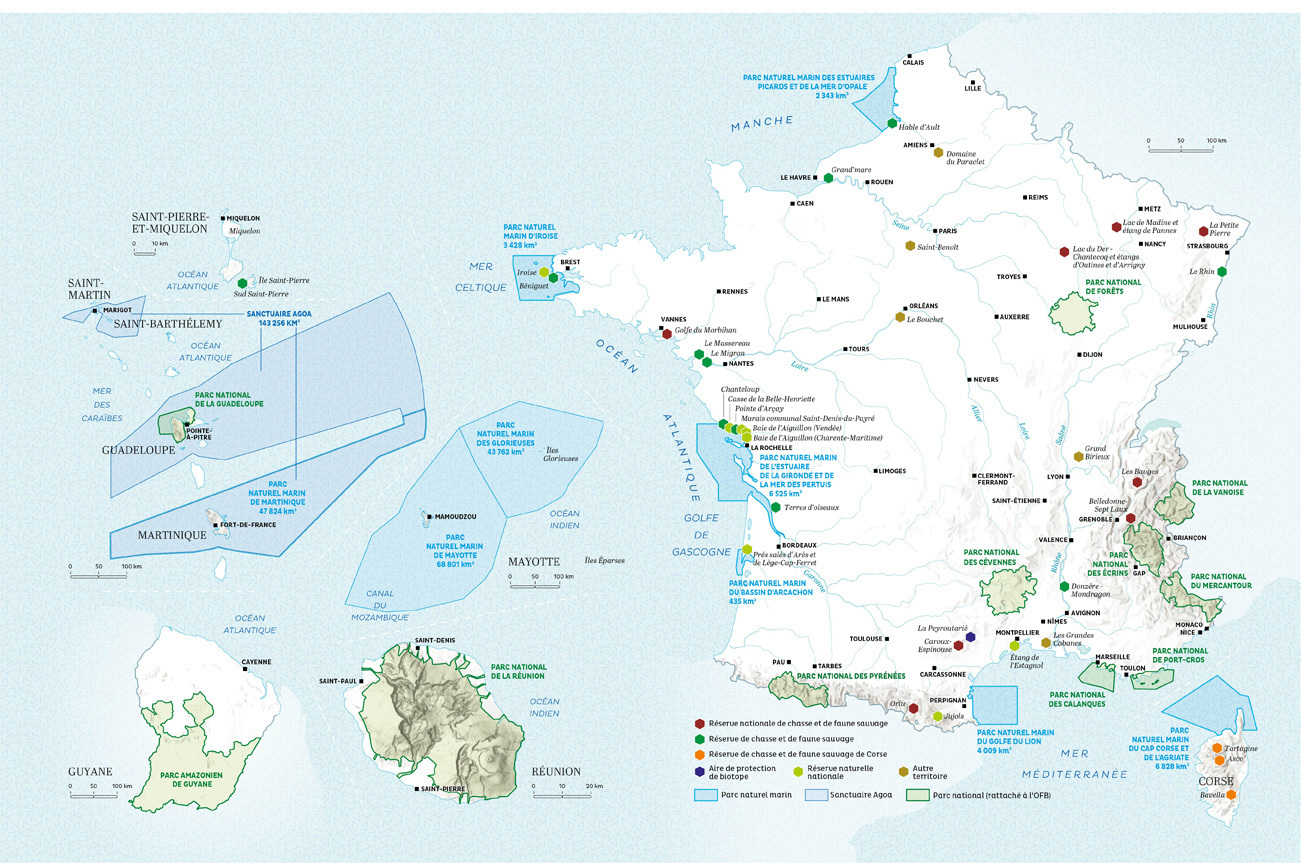
Les espaces maritimes français, dont un tiers est censé être « protégé », demeurent en péril faute de moyens
Le #OneOceanSummit, « sommet des océans » se tiendra du 9 au 11 février à Brest. Emmanuel Macron devrait notamment s’y auto-féliciter de sa politique en faveur des « aires marines protégées ». Mais derrière le coup de com’, la réalité est toute autre. Basta! a enquêté. https://basta.media/One-Ocean-Summit-Brest-Macron-aires-marines-protegees-soulevement-de-la-mer-office-francais-de-la-biodiversite
#OneOceanSummit #OnePlanetSummit #BlueWashing #Communication #EmmanuelMacron #Preservation #Biodiversité #Ocean #Mer #Politique #MoyensHumains #AiresMarinesProtegees #SoulevementsDeLaMer #Brest #Ecologie #Climat #StopDeepSeaMining #ExploitationMinière
One person like that
1 Shares
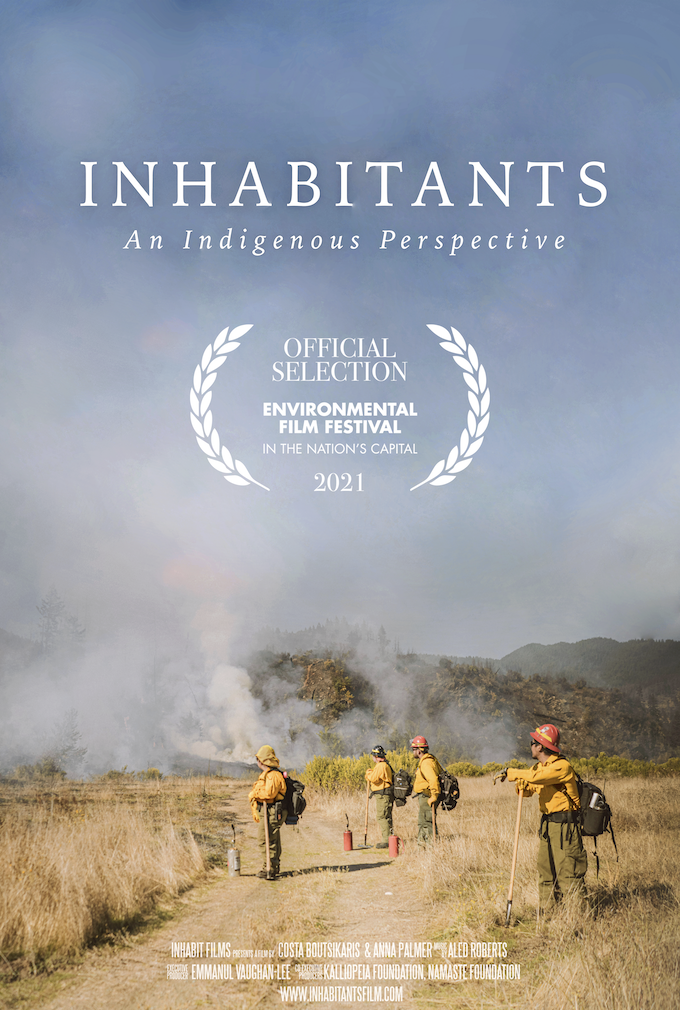
Inhabitants
An Indigenous Perspective
Inhabitants: An Indigenous Perspective is a feature-length documentary that follows five North American tribes restoring their ancient relationships with the land while adapting to today’s climate crisis.
The film travels across diverse bioregions of North America, from deserts and coastlines, to forests, mountains, and prairies, highlighting the dramatic effects of climate change and stories of indigenous land stewardship practices, which continue to be resilient in the face of a changing climate. The film focuses on five stories: the return of prescribed fire practices by the Karuk Tribe in California; the restoration of buffalo on the Blackfeet reservation in Montana; sustained traditions of Hopi dryland farming in Arizona; sustainable forestry on the Menominee reservation in Wisconsin; and the revival of native Hawaiian food forests in Hawaii.
Although these stories are not connected geographically, and only represent a small portion of the many diverse indigenous communities leading efforts to maintain their cultural practices and identity, they all share the common dimensions of “traditional knowledges.” According to Guidelines for Considering Traditional Knowledges in Climate Change Initiatives,"[traditional knowledges] broadly refer to indigenous communities’ ways of knowing that both guide and result from their communities members’ close relationships with and responsibilities towards the landscapes, waterscapes, plants, and animals that are vital to the flourishing of indigenous cultures."
Climate change poses an immediate threat to Indigenous Peoples’ health, well-being and ways of life. Tribal nations are on the front lines of confronting climate change, including increased frequency and intensity of wildfires, higher temperatures, ecosystem changes, ocean acidification, forest loss, and habitat damage. Climate change also raises questions about what will become of spiritually and culturally significant ecosystem services that are essential to maintaining many tribes’ identities. Indigenous communities are disproportionately harmed by the changing climate as they depend more on natural resources than the US population as a whole. Negative impacts include threats to traditional foods such as fish and crops which have provided sustenance as well as cultural, economic, medicinal, and community health for countless generations.
Emerging threats have galvanized a concerted effort by several tribes to forge ahead with climate-change adaptation strategies. They are leading the way guided by indigenous traditions and are quickly adapting to and even directly counteracting the shifting climate. Examples like the Hopi dry land farming techniques show how to deal with extremely arid and hot weather; the raising of Native Bison on the prairie lands of the Midwest improves carbon sequestration while removing the need for feedstocks; and forest fire management that is being guided by native forestry practices are just a few of the stories that give insight into how much wisdom and importance the indigenous land use practices reflect; and how crucial it is that their story is heard. The indigenous land management practices in the forests, deserts, prairies and coastlines of North America have much to offer to the current conversation surrounding climate adaptation and mitigation.
The First Peoples are estimated to have lived in North America for 15,000 years. In a few short centuries Native Americans have had most of their population systematically erased, almost all their land taken, and also been forced to deal with the disastrous effects of industrialization on their remaining resources. Tribal communities have proven to be remarkably resilient, surviving in some of the most extreme environments and having endured very aggressive marginalization. We can now create a platform for helping these marginalized people share their wisdom about how to live in these lands and how their history and tradition can inform and guide us. This documentary is an effort to give Native Americans an opportunity to share their stories of resilience and wisdom in the face of extreme climatic stress. We as a society can listen and learn from these stories of time tested land use practices. Now is the moment to support Native peoples in becoming leading voices on how to design, create, imagine and live in a more sustainable and resilient world.
This past fall we had the honor of documenting the prescribed fire traditions of the Karuk Tribe in Northern California and the sustainable forestry operations of the Menominee Tribe in Wisconsin. These stories are being woven into a feature length documentary Inhabitants due out in 2020. Folks have been asking a lot about the Woodlanders series and although I took a break last summer to focus on this feature film we are ramping up for a new season of short films starting in the Pacific Northwest next month. Thanks for your patience and support. — Costa Boutsikaris (2019)
#Woodlanders is an online film series that seeks to document the work of people who care for and depend on forests for their livelihood and well-being throughout the world.
Even among today’s progressive movements of local economy and food systems, the vast global knowledge of forest livelihoods and economies are mostly undervalued and undocumented. From woodcraft and nut tree cultures of ancient Europe, to mushroom and forest medicines of Asia, there many fascinating ways of creating sustainable economies from the forests while maintaining their ecological health and complexity. While filming Inhabit - A Permaculture Perspective I fell in love with woodland cultures and felt called to research further. Over the past year I began to create an accessible archive of these stories and I hope to share this inspiring world with you. Sustainable relationships with forests regenerate and protect these wild places while also offering livelihoods to humans. Each episode will focus on a person or culture who has a sustainable relationship and/or livelihood with a forest. Join me on the journey and learn how much forests can offer. — Costa Boutsikaris
#Inhabitants #documentary #film #nature #environment #climate #FirstPeoples #IndigenousPeoples #tribal #lands #community #people #climate-change #land #reservations #land-use #aboriginal #management #fires #bushfires #wildfires #forestry #dryland #farming #food #food-growing #well-being #wisdom #way-of-life #culture #tradition #food #food-growing #practices #natural #resources #ecology #stewardship #knowledge #education #adaptation #Karuk #Blackfeet #Hopi #Menominee #Hawaii #TraditionalEcologicalKnowledge #conservation #protection #preservation #sustainability #resilience #CostaBoutsikaris #InhabitFilms #docu-films
10 Likes
3 Comments
5 Shares
https://vimeo.com/ondemand/thehiddenlifeoftrees
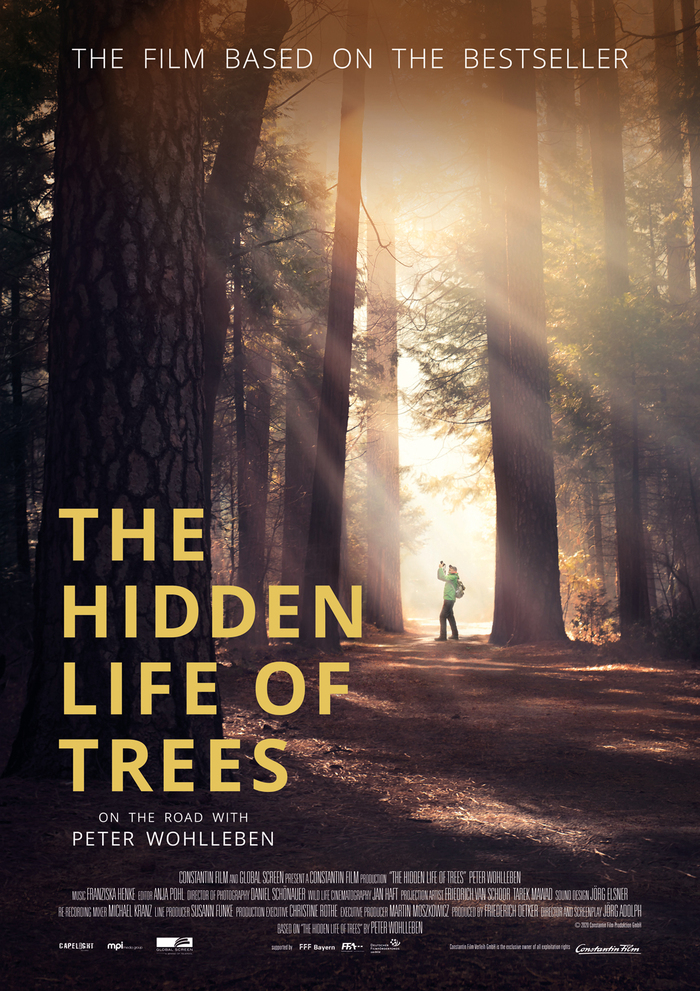
The Hidden Life of Trees
When we pursue nature protection, we’re not protecting nature. We’re protecting ourselves.
Branching off of his bestselling book, renowned forester and writer Peter Wohlleben guides us through his most precious ideas and understanding of how trees work in this enlightening documentary. Presenting ecological, biological and academic expertise with matter-of-fact candor, Peter inspires us to really see the forest for the trees. Traveling through Germany, Poland, Sweden and Vancouver, Peter discusses, debates and explains the amazing processes of life, death, and regeneration he has observed in the woodland, and the amazing scientific mechanisms behind these wonders of which we are too often blissfully unaware.
#TheHiddenLifeOfTrees #documentary #films #nature #environment #trees #woodwideweb #micorrhizal #networks #protection #preservation #conservation #ecology #PeterWohlleben #JörgAdolph #MPIMediaGroup #docu-films
12 Likes
4 Comments
4 Shares
The Ancient Method That Keeps Afghanistan’s Grapes Fresh All Winter
https://www.atlasobscura.com/articles/how-did-people-store-fruit-before-fridges
Afghans developed this method of food preservation, which uses mud-straw containers and is known as kangina, centuries ago in Afghanistan’s rural north. Thanks to the technique, people in remote communities who can’t afford imported produce are able to enjoy fresh fruit in winter months.
Despite the practice’s generation-to-generation longevity, it has barely been documented or studied, explains Murtaza Azizi, Acting Director for Tourism at the Ministry of Culture and Information. But the clay-rich mud, whose seal keeps out air and moisture like a Tupperware or ziplock bag, protects the fruit from the winter cold, and works best for certain types of grapes.
#Kangina #grapes #food #preservation #ZiaulhaqAhmadi #Afghanistan #atlasobscura
4 Likes
1 Comments
Salween Peace Park: for all living things
https://theecologist.org/2020/sep/08/salween-peace-park-place-all-living-things
Karen territories boast fertile soil, where the ‘Ku’ shifting cultivation system is used to grow vegetables and other foods rotationally, allowing nature to recover. The rivers of our Karen territories, including the Salween, provide a means of reliable transport and trade, as well as a rich source of fish. Our people forage for wild foods like bamboo shoots, banana fruits and flowers, honey, mushrooms, and edible ferns in verdant forests.
#nature #environment #land #river #Salween #Karen #SalweenPeacePark #Indigenous #peoples #Myanmar #protection #preservation #protection #theecologist
3 Likes
https://www.youtube.com/watch?v=dIqFsePvAqg
#TreesAreTheKey
This inspirational 40-minute documentary has been made in conjunction with The Word Forest Organisation, a Dorset charity that plants trees, builds classrooms and facilitates education in rural Kenya. It also shines a spotlight on the women’s empowerment group, Mothers of the Forest.
Tim Tyson Short is an outstanding filmmaker and over the past three decades he has made films for broadcasters and developmental organisations worldwide. Back in February 2019, he accompanied a small team of Word Forest volunteers to Boré, Coast Province, Kenya. His remit was to tell the story of why we need to plant more trees in the tropics and why we need to support the people who are taking care of the forests. “If we don’t address both of these urgent requirements, we’ll find ourselves at existential o’clock”, says Word Forest CEO, Tracey West.
Tim captured remarkable stories from the tree planters of Boré, including charting the success of the 40 Mothers of the Forest, with group facilitator, Eva Jefa. “I hope by sharing our model for positive change through environmental education, we’ll be able to encourage others to adopt it too,” says, Eva.
Simon West, Chair of Trustees, adds: “Understanding sustainability via #permaculture, for example, allows the community to better resist climate chaos. We’re trying to fill the gaps left by governments and undo the damage done by big corporations.”
Over the past 2 years, the Mothers have addressed social isolation and depression amongst the women in their community by building a framework of sisterly support and resilience. Eva continues: “Women do the majority of the tree planting here. We come together to share knowledge on the best ways to take care of the forest; the planet benefits and we benefit too.”
#TreesAreTheKey #documentary #film #tree-planting #trees #forests #food #food-growing #protection #preservation #conservation #resilience #Kenya #MothersOfTheForest #TimTysonShort #TheWordForestOrganisation #docu-films
3 Likes
1 Shares
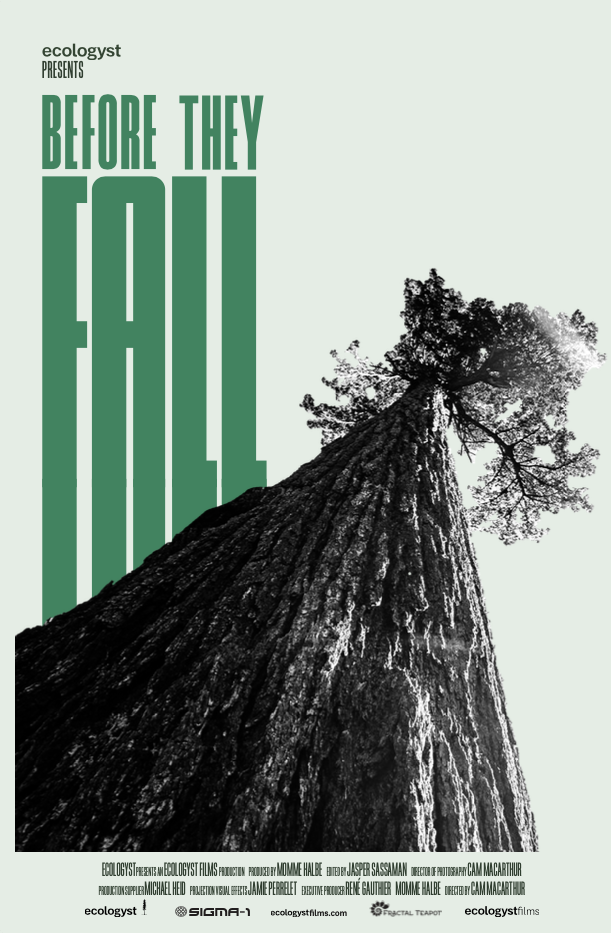
Before They Fall
Conservation groups, First Nations, and scientists come together in this timely, upcoming short film, as a decades-long battle to protect endangered old-growth forests in BC escalates at Fairy Creek (the last unprotected, intact valley on southern Vancouver Island).
The film explores the characters’ individual relationships with ancient forests, and why it’s imperative we collectively protect them. It touches on potential solutions, like a transition away from old-growth in the future of logging, and Indigenous sovereignty.
#BeforeTheyFall #documentary #film #nature #environment #trees #old-growth #forests #protection #preservation #conservation #activism #grassroots #movement #FairyCreek #FirstNations #Indigenous #sovereignty #CamMacArthur #ecologyst #ecologystfilms #docu-films
2 Likes
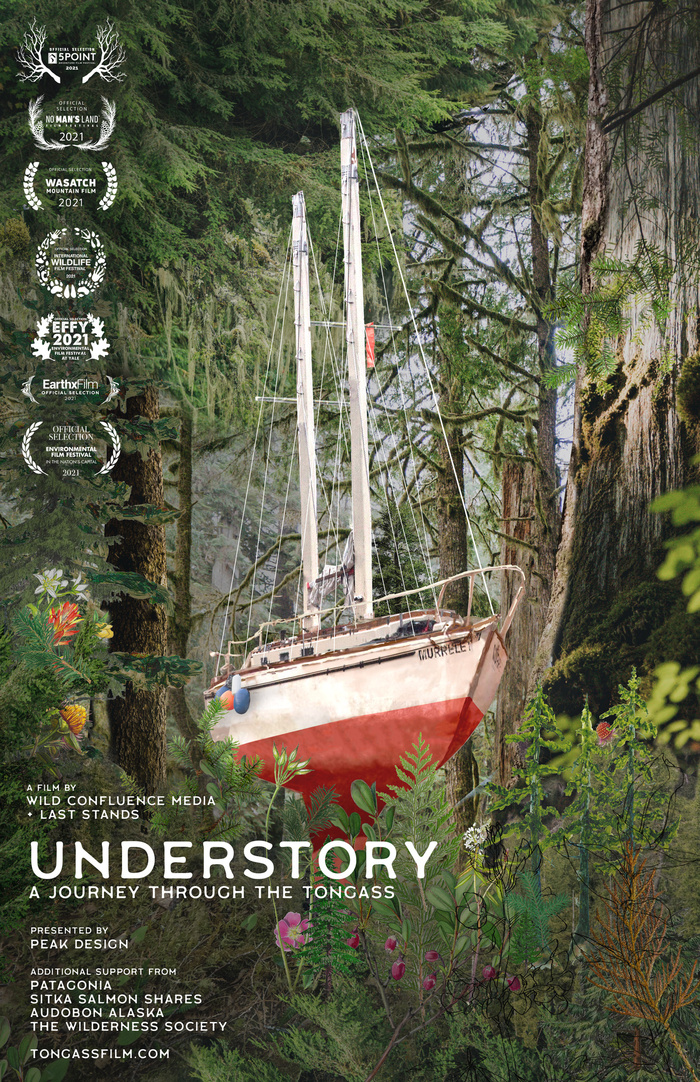
Understory
Tongass Documentary
“Understory” is a short film that takes us deep into Alaska’s Tongass National Forest, the largest remaining temperate rainforest on the planet. Our guide, Elsa Sebastian, is a young local fisherman who grew up “off-grid” in a remote village surrounded by the vast, ancient forest. When Elsa learns that the U.S. federal government is axing environmental protections for nine million acres of the Tongass, she is driven to action–first fixing up an old sailboat, and then setting sail on a 350-mile expedition along the rainforest’s coast.
Elsa is joined by Dr. Natalie Dawson, a biologist who has spent decades studying Alaska’s wildlife, and artist Mara Menahan. For a month the team documents old-growth trees threatened by logging, witnesses the dark aftermath of clearcuts, visits streams teeming with salmon, and learns about indigenous cultural connections to the Tongass. As Elsa, Natalie, and Mara personally and directly face the devastating impacts of the timber industry on the old growth forest, they struggle to hold onto hope. With the end of their journey comes the realization that saving our last ancient rainforests is more urgent than they could have imagined.
Director Colin Arisman deftly unpacks and presents the story of greed and mis-guided government management that has defined decades of logging in the Tongass. Through breathtaking cinematography and poignant personal experience, Understory makes the case that saving ancient forests like the Tongass is critical to both the resilience of humans and the future of our planet’s climate.
New film documents threats to Tongass National Forest, need for protection
https://www.wilderness.org/articles/blog/new-film-documents-threats-tongass-national-forest-need-protection
#Understory #documentary #film #nature #environment #logging #trees #old-growth #forests #rainforests #protection #preservation #conservation #indigenous #cultural #connections #MarinaAnderson #MaraMenahan #NatalieDawson #ElsaSebastian #Tongass #Alaska #TongassNationalForest #LastStands #tongasslaststands #ColinArisman #TheWildernessSociety #WildConfluence #docu-films
2 Likes
https://vimeo.com/581108863/306d2d2647
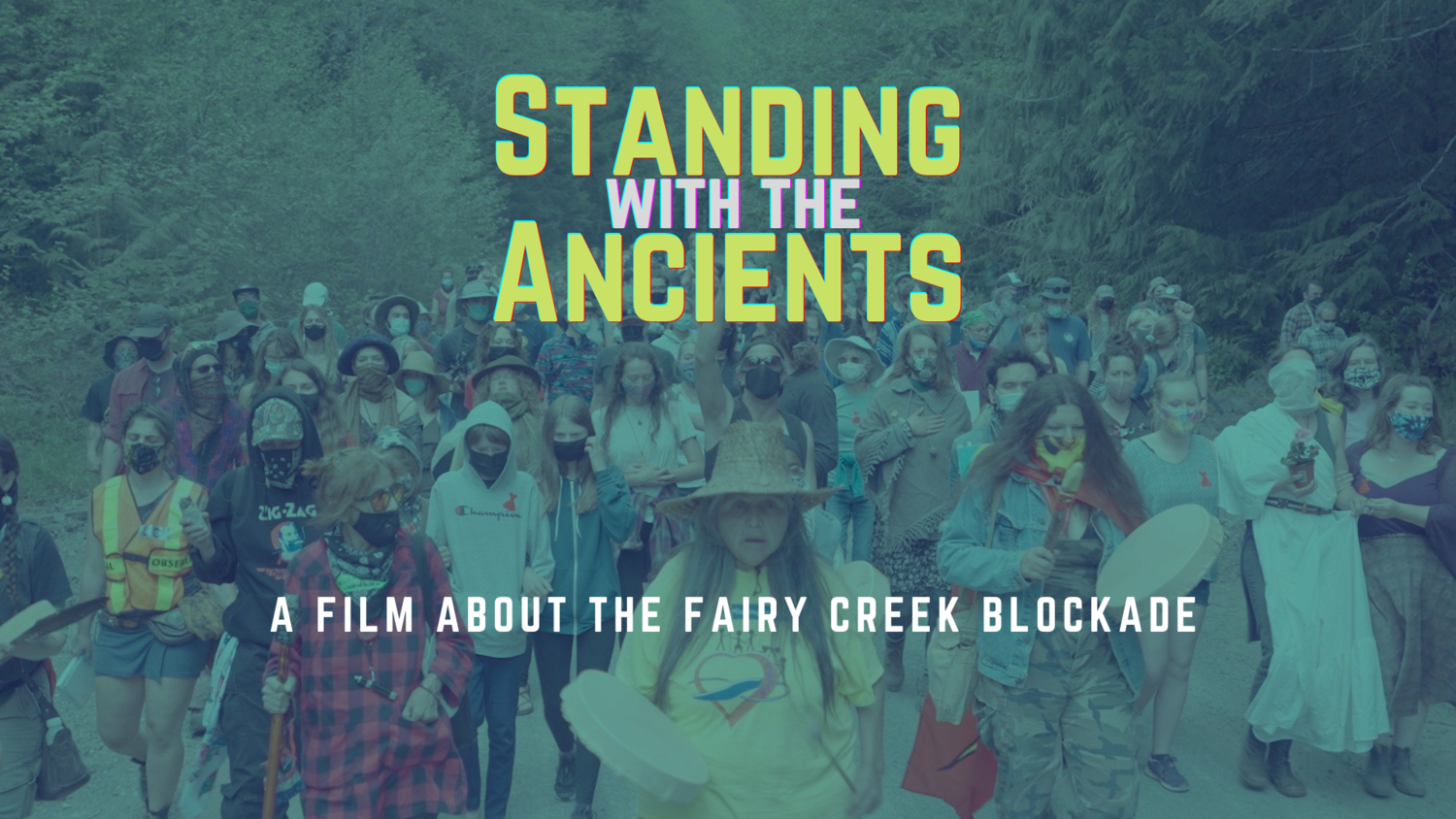
Standing with the Ancients
A poetic and in-depth immersion into the forest activists blockading logging roads on Vancouver Island in a fervid attempt to stop old growth logging in Fairy Creek.
When construction of a new logging road was discovered cresting into the untouched Fairy Creek watershed near Port Renfrew on southern Vancouver Island, a group of activists quickly set up a road blockade to stop old growth logging in the area. For nine months, these forest defenders halted road building and old growth logging in the unprotected valley. But when the Supreme Court grants an injunction to remove the camps through police arrests, the blockaders find themselves at the intersection of activism and grief. Will the encroaching threat of arrest stop their efforts to protect Canada’s last ancient forests from being cut down?
In a deja vu of the memorable ‘War in the Woods’ in Clayoquot Sound 30 years ago, Standing with the Ancients is a hybrid mid-length character-driven documentary about the current historical Fairy Creek blockade movement. The film blends an observational, cinema vérité approach with experimental soundscapes and artful archival imagery to create a surrealistic and enveloping embedment into the first-hand experiences of the impassioned forest defenders fighting in the largest act of civil disobedience in Canadian history.
#StandingwiththeAncients #documentary #film #logging #old-growth #trees #forests #activism #resistance #protection #preservation #conservation #FairyCreek #JenMuranetz #EstoriaProductions #docu-films
3 Likes
After decades of waiting, Indigenous peoples are finally getting a say in global conservation policy
https://grist.org/accountability/after-decades-of-waiting-indigenous-peoples-are-finally-getting-a-say-in-global-conservation-policy/
The General Assembly of the International Union for Conservation of Nature, or IUCN, will gather next week to shape a collective strategy to protect the world’s increasingly at-risk flora and fauna. Representatives from more than 217 nations and territories, 18,000 experts, and 1,400 NGOs, businesses, and scientific institutions will vote on recommendations and motions that will mobilize money and build political momentum for global conservation efforts. And now, for the first time in the IUCN’s 73-year history, Indigenous peoples will finally get a seat at the table.
Twenty-three Indigenous organizations, representing groups from every continent, will join this year’s IUCN’s General Assembly as members, meaning that they can introduce motions; vote for or against resolutions and recommendations; and participate in working groups.
#nature #environment #conservation #preservation #protection #Indigenous #peoples #InternationalUnionForConservationOfNature #grist
2 Likes
http://buckyisback.com/integrity/
http://buckyisback.com/quotes/
http://buckyisback.com/
#integrity #bucky #buckywasright #buckyisback #buckminsterfuller #dbm #growthmindset #morethanjustprofessing #spaceshipearth #maximumadvantageforothersintheshortestpossibletime #dontholdback #notimeforcaution #timeforcaution #thetimehascometo #now #regernative #regernerate #regenerating #sustainable #linearresourcetocircularresource #abundance #considerate #balancedeconomicparadigm #fairness #ecology #stability #preservation #education #floatingeconomy #emancipationtechnology #ecologicalengineering #diversity #innovation #celebrating #actionsofindividuals #butterflywings #doingbecauseitsright #feelinggooddoingright #gooddeedsaretheirownreward #canmend
#mendwards
Jardiner pour penser autrement
ÉCOLOGIE
Ça change au jardin .
Autrefois, les déchets végétaux, on les brûlait sans scrupules. Il faut avouer que l’on toussait souvent. Le rituel semblait sympathique et efficace… mais en réalité quelle pollution ! C’est aujourd’hui interdit…
Puis, on apprit à transporter nos déchets à la déchetterie ou les entreposer à la bonne date dans de grands sacs dédiés… Certes les déchets sont recyclés, mais pas à notre propre bénéfice. Il y a le prix du coût carbone de leur transport et de leur traitement…
Il y eut ensuite ceux qui firent l’acquisition de broyeurs et d’autres se lancèrent dans l’art du compost.
D’aucuns montrèrent qu’il n’était pas pertinent de recourir au broyeur, la tondeuse ou les sécateurs pouvant agir fort utilement…
J’ai appris depuis peu ce qu’était le BRF. Bois raméal fragmenté s’il vous plaît !
Au delà, la tendance actuelle est donc de recycler sur place et de nourrir le sol avec les déchets du jardin.
Le regard vis à vis “des mauvais herbes” a également évolué… on peut même oser semer des graines de fleurs dans les interstices entre les pierres… Bien entendu les produits chimiques sont proscrits !
Au delà des aspects techniques, c’est bien une nouvelle philosophie qui entre au jardin. Une sorte de bienveillance qui invite à mieux prendre soin de l’espace et des sols.
Outre l’attitude responsable, il me semble que ces nouvelles approches viennent nous enseigner comment les végétaux évoluent.
Ils le font en lien direct avec la vie animale.
J’ai déjà parlé de la collaboration active avec les taupes . Je note le retour des papillons et l’observation du compost a permis de noter une diversité d’insectes en action ou la présence de nombreux vers…
Le tas de bois soigneusement rangé pourra abriter des insectes. J’ai noté le retour des abeilles.
Ces pratiques douces supposent un certain engagement… c’est concret et remuer du compost fait aussi travailler les muscles ! C’est donc bon pour la santé !
Mais c’est bon aussi pour le cerveau car jardiner permet ainsi de se “nettoyer le cerveau” en chassant les idées toxiques. Jardiner peut inviter à penser son rapport au monde, au vivant en nous reliant à la vie végétale ou animale. Enfin quand on est parvenu au bout d’une tache , même si c’est “provisoire”, le cerveau trouve récompense dans la satisfaction du travail accompli !
Le jardin du 21ème siècle a abandonné les solutions expéditives d’antan aux lourdes conséquences. Loin de céder à une mode, il s’agit en réalité de trouver là une illustration concrète de l’attention que nous pouvons porter à la protection de notre environnement et au développement de notre bien être.
#envoronnement #déchets #jardin #brf #compost #bois-rameal-fragmente #dechets #ecologie #environnement #evolution #preservation
Originally posted at: https://vincentbreton.fr/blog/jardiner-pour-penser-autrement/




